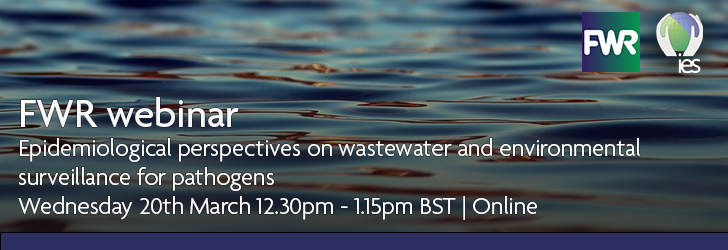Wastewater-based epidemiology is the process of using wastewater to monitor levels of pathogens, chemicals and pharmaceuticals in a population and has a number of applications, including acting as an early warning system for outbreaks. Wastewater and environmental surveillance has been in use since the 1960s, but interest really expanded in this area in response to the the COVID-19 pandemic.
In this webinar the speaker will provide an overview of the study of infectious diseases, and how epidemiologists typically look for new outbreaks or monitor disease control activities. The speaker will describe some of their ongoing research and the remaining challenges in maximising the utility of this novel data source.
This webinar has been organised by the Sustainable Wastewater Management Technical Panel, part of the FWR Community. Find out more about the Community and how you can get involved.
 Our speaker
Our speaker
Kath O'Reilly, London School of Hygiene and Tropical Medicine
Kath is an Associate Professor in statistics for infectious diseases at the London School of Hygiene and Tropical Medicine (LSHTM), UK. Her research interests are in the use of statistics and mathematical modelling to understand how infectious diseases spread and to identify suitable control and eradication strategies. The research team at LSHTM are modelling partners for Unicef in the Global Polio Eradication Initiative, where analysis and modelling are used to support polio eradication globally. Activities in wastewater and environmental surveillance have stemmed from its use in polio eradication, and during the COVID-19 pandemic several projects were established to better understand SARS-CoV-2 spread from wastewater. More recently, activities have been extended to include environmental multi-pathogen surveillance.


